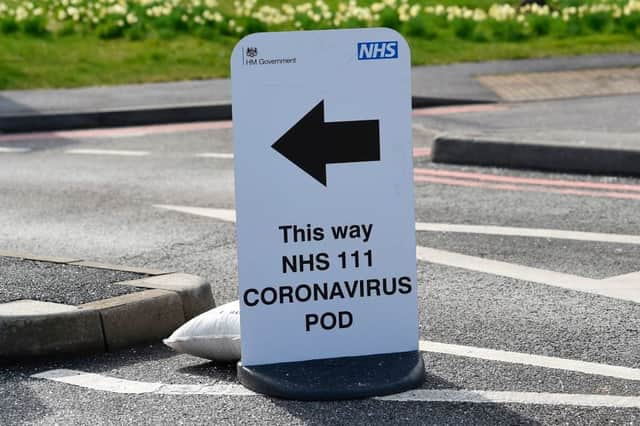These are the signs and symptoms of coronavirus - and how it spreads
This article contains affiliate links. We may earn a small commission on items purchased through this article, but that does not affect our editorial judgement.


The current global outbreak of coronavirus - officially named Covid-19 by the World Health Organisation (WHO) - has been declared a pandemic.
If you are feeling unwell and concerned that you may be displaying signs of the virus, these are the symptoms and precautions you need to know.
Advertisement
Hide AdAdvertisement
Hide AdWhat are the symptoms of coronavirus?
Coronaviruses are a large family of viruses, with the Centers for Disease Control and Prevention (CDC) explaining they usually cause “mild to moderate upper-respiratory tract illnesses”, like the common cold.
This particular strain originated in Wuhan City, Hubei Province, the largest city in central China, and is in the same family as SARS and MERS (Middle East respiratory syndrome).
The first suspected cases of the virus were reported at the end of last year on 31 December 2019 in Wuhan, but it has since been confirmed in other parts of China.
Most people get infected with these viruses at some point during their lives, although they usually only last for a short period of time.
Symptoms of the virus may include:
- runny nose
- headache
- cough
- sore throat
- fever
- loss of smell and taste
- a general feeling of being unwell
Human coronaviruses can sometimes cause lower-respiratory tract illnesses, such as pneumonia and bronchitis, or more severe diseases such as SARS. However, this is more common in people with cardiopulmonary disease, people with weakened immune systems, infants and older adults.
How does it spread?
Coronaviruses are most commonly spread from an infected person to others through the following means:
- the air by coughing and sneezing
- close personal contact, such as touching or shaking hands
- touching an object or surface with the virus on it, then touching your mouth, nose, or eyes before washing your hands
- fecal contamination, although this is rare
How to stay safe
There are currently no vaccines to protect against coronavirus infection, but there are ways to help reduce your risk of contracting it.
The CDC advise:
- washing your hands often with soap and water for at least 20 seconds
- avoid touching your eyes, nose, or mouth with unwashed hands
- avoid close contact with people who are sick
If you are experiencing cold-like symptoms, you can help reduce the risk of spreading it by staying at home while you are ill, and avoiding close contact with others.
You should cover your mouth and nose with a tissue when you cough or sneeze, and throw this away before washing your hands. It is also recommended to clean and disinfect objects and surfaces.
#HealthHeroes
Show your support for the incredible work being done by those working on the frontline of the coronavirus crisis. Join our Facebook group and follow the dedicated Instagram page to read stories of everyday heroism and share your own messages.
A message from the Editor
Thank you for reading this story on our website. While I have your attention, I also have an important request to make of you.
In order for us to continue to provide high quality and trusted local news on this website, I am asking you to also please purchase a copy of our newspaper.
Our journalists are highly trained and our content is independently regulated by IPSO to some of the most rigorous standards in the world. But being your eyes and ears comes at a price. So we need your support more than ever to buy our newspapers during this crisis.
With the coronavirus lockdown having a major impact on many of our local valued advertisers - and consequently the advertising that we receive - we are more reliant than ever on you helping us to provide you with news and information by buying a copy of our newspaper.
Thank you, and stay safe.
Sources: World Health Organisation and NHS